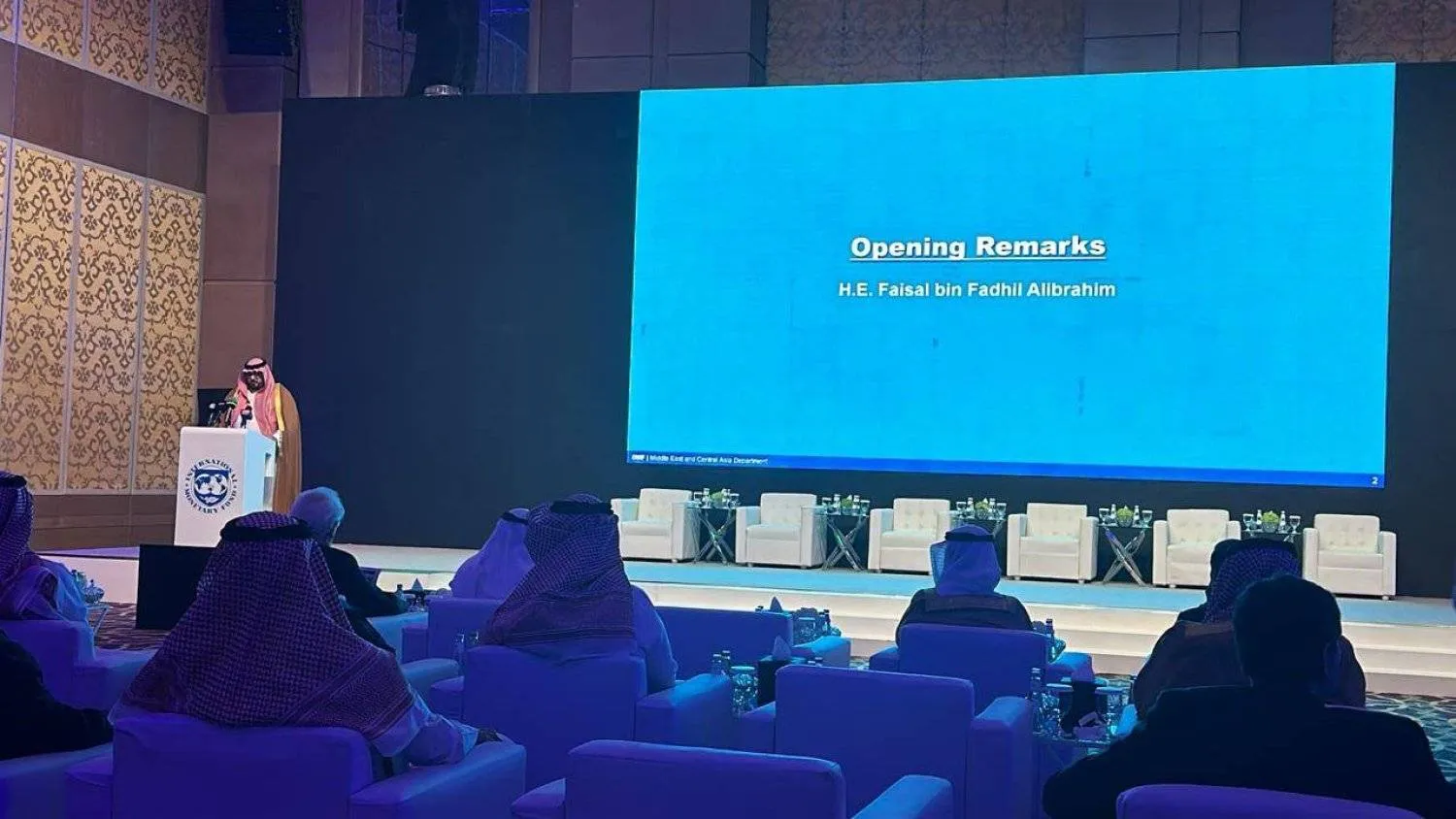The International Monetary Fund (IMF) has inaugurated its regional office in Riyadh with the aim to strengthen partnership with countries in the Middle East and beyond, engage with regional institutions, and improve relations with governments in countries of the region.
In October 2022, Saudi Minister of Finance Mohammed Al-Jadaan, signed with the Fund’s Director General, Kristalina Georgieva, a memorandum of understanding to establish a regional IMF office in the Kingdom.
Wednesday’s inauguration came during the launch of a conference organized by the IMF, in cooperation with the Finance Ministry, under the title, “Industrial Policy to Promote Economic Diversification,” in the presence of Minister of Economy and Planning Faisal Al-Ibrahim.
A statement issued by the IMF said that the new office “will scale up capacity building, regional surveillance, and outreach to promote stability, growth, and regional integration. It will strengthen the IMF’s engagement with regional institutions, governments, and other stakeholders.”
“The IMF is grateful for the Kingdom of Saudi Arabia’s financial contribution to boost capacity development to IMF members—including fragile states,” it added.
According to the IMF, the first director of the regional office will be Abdoul Aziz Wane, from Senegal, who is “a seasoned IMF leader with deep knowledge of the institution and a vast network of policymakers and academics across the world.”
Sources told Asharq Al-Awsat that the opening of a regional office for the IMF in Saudi Arabia is evidence of the international institution’s recognition of the strength of the Saudi economy on the one hand, and of the position it enjoys regionally and internationally.
Addressing the conference on Wednesday, Al-Ibrahim said Saudi Arabia will witness a shift in economic diversification, pointing to a need to encourage openness to local and global competition in order to ensure that the country’s industry is able to flourish deservedly and as quickly as possible.
Since the launch of an integrated program within Saudi Vision 2030 to reduce dependence on oil and diversify other sources of income, the Kingdom has witnessed fundamental changes in the legislative and political system that have led to transforming the business environment, creating new sectors, and building huge projects such as NEOM and the Red Sea, the minister underlined.
To promote sustainable development in local industries, Al-Ibrahim stated that the focus remains on stimulating local and international competitiveness. He stressed that this exposure to the international market encourages companies to continuously improve and innovate to maintain their competitive advantage.
The IMF conference is held over two days, and aims to review the basic principles of industrial policy and draw lessons from its successes and failures in other regions.









